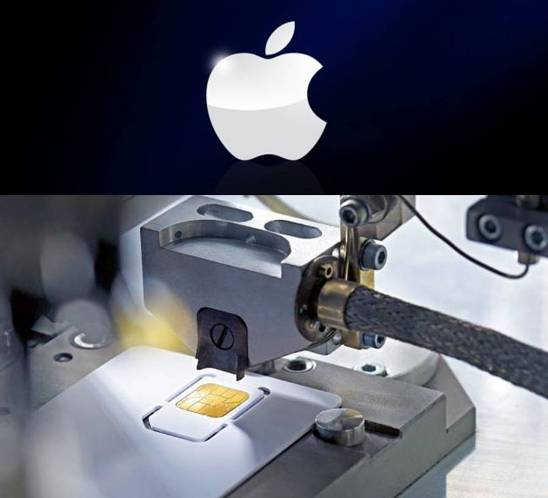 Although THQ, one of the larger developers in the gaming industry, is currently facing financial difficulties (due to poor sales in 2011), it is hopeful that its situation can take a turn for the better by establishing new IP as part of its IP management and strategy in an important transition year for the cyclical gaming-console industry in response to the upcoming release of next-generation platforms. The anticipated “Xbox 720” (a.k.a. Xbox Trinity or Xbox 8, depending on which rumor mills you follow) from Microsoft, along with expected competitor refreshes in Sony’s PlayStation 4 and Nintendo’s Wii U, has THQ looking to plug into the launches with new titles.
Although THQ, one of the larger developers in the gaming industry, is currently facing financial difficulties (due to poor sales in 2011), it is hopeful that its situation can take a turn for the better by establishing new IP as part of its IP management and strategy in an important transition year for the cyclical gaming-console industry in response to the upcoming release of next-generation platforms. The anticipated “Xbox 720” (a.k.a. Xbox Trinity or Xbox 8, depending on which rumor mills you follow) from Microsoft, along with expected competitor refreshes in Sony’s PlayStation 4 and Nintendo’s Wii U, has THQ looking to plug into the launches with new titles.
Carrying with it risk and reward, THQ CEO Brian Farrell has referred to console transition years as the “best time to establish new IP.” Cleaning house by trimming staff is typical of the gaming industry in a transition year – THQ is no exception with downsizing and pay cuts occurring recently.
Game makers look for quality brands and execution speed to gain first-mover advantages as part of a competitive IP strategy. In order to produce technically-superior, original titles, they rely on a pipeline of creative talent as part of their IP management to generate in-house IP as a competitive advantage for proprietary franchises, as well as licensing external IP (such as film or book rights) to manage and mitigate risk.
Risky indeed – paralleling the movie industry, game development and production is a cash-draining undertaking with huge sunk costs, substantial development windows, and fickle consumer preference making a highly-unpredictable “hit or miss” outcome. The transition years at the end of a console cycle mark the rise of market anxiety with focus on the average number of games sold per console sold, or “tie ratio,” being indicative of the hardware/software interplay. This is typically the time when gamers start to hold off on new purchases until the next-gen platforms come out. Deciding which platform to ride (both for the game producers and gamers alike) is like jockeying the right horse – a gamble of its own.
Compounding the tension, a storm of patent litigation over Digital Video Recording (DVR) technology involving Microsoft has raised concerns of delays in the release of the Xbox 720, which has been rumored to include DVR features, projected for a 2013-2015 release.
The lawsuit was filed by Microsoft in January 2011 against TiVo over alleged patent infringement of seven of Microsoft’s DVR patents, with Microsoft claiming that TiVo violated Microsoft’s IP on delivery of online programming and secure payment for downloads. TiVo subsequently requested reexamination of the Microsoft patents which has stayed the case for the time being.
Since then, Microsoft was granted US Patent No. 8,083,593 in December 2011 for a DVR system implemented on a gaming console for recording media, including music, TV, and online content. A DVR application running alongside a television client component is recited in the patent, with the application integrated into the console user-interface for simultaneous gaming and recording. This has fueled more gossip in the gaming blogosphere over the impact to the Xbox 720’s release, and whether it will have DVR capabilities.
Speculation is rampant that Microsoft was prompted to file the infringement case against TiVo as part of a broader IP strategy to counter TiVo’s patent litigation against AT&T and their U-verse technology. TiVo’s 2009 suit against AT&T was based on three DVR “time warp” patents owned by TiVo. The parties settled in January 2012 with AT&T agreeing to pay ~$215 million. In order to prove infringement on TiVo’s part, Microsoft sought involvement in that case since the U-verse technology is based on Microsoft’s Media Room client software. The Microsoft-TiVo controversy negatively affects THQ’s “ride the wave” launch strategy, raising more uncertainty over the new Xbox’s release date and functionality.
The Xbox was further caught in the crossfire of the patent war going on between Microsoft and Motorola involving the H.264 video codec. A ruling in the Mannheim regional court on four patent litigation lawsuits between the two parties granted an injunction against the continued distribution of Windows 7, Internet Explorer, Windows Media Player, and the Xbox 360 in Germany. Microsoft has issued the following statement suggesting that Motorola won’t be able to immediately enforce the ruling due to the EU’s investigation of Motorola for violation of FRAND licensing terms of their patents.
This is one step in a long process, and we are confident that Motorola will eventually be held to its promise to make its standard essential patents available on fair and reasonable terms for the benefit of consumers who enjoy video on the web. Motorola is prohibited from acting on today’s decision, and our business in Germany will continue as usual while we appeal this decision and pursue the fundamental issue of Motorola’s broken promise.
Welcome to the wonderful world of IP warfare in which IP management is risky business. That is not to say that patents and a structured IP strategy are not serving their intended purposes. On the contrary, the sophisticated patent litigation minefield that technology companies find themselves in more and more these days could be viewed as the birth pangs of an emerging, immature IP market in its unregulated, non-optimized infancy. Of course, if the saga is too much to follow, you can always just press replay until the sequel comes out.













